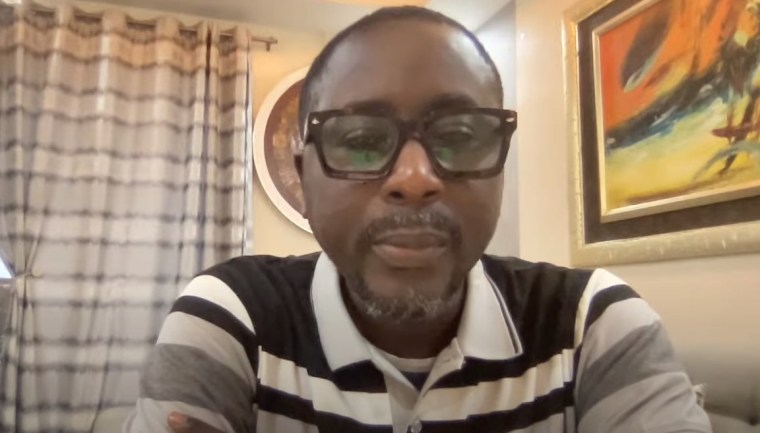Dakar, August 4, 2023—Senegalese authorities must unconditionally release journalist Pape Alé Niang, who began a hunger strike on July 29, and cease all legal proceedings against him related to his work, the Committee to Protect Journalists said Friday.
On Tuesday, August 1, Niang, editor of the privately owned news site Dakarmatin, was charged by the examining magistrate in Dakar, the capital, with calling for insurrection, and acts or maneuvers likely to compromise public security, according to Moussa Sarr, the journalist’s lawyer, who spoke to CPJ via messaging app, and news reports.
Niang has been on hunger strike since he was arrested at his home on Saturday, July 29, and is being held in a special pavilion for sick prisoners at the Aristide Le Dantec hospital due to his fragile health.
“Senegalese authorities must end their sustained legal harassment of journalist Pape Alé Niang and ensure that he is released unconditionally and that all charges against him for his work are dropped,” said Angela Quintal, CPJ’s Africa program coordinator in Durban, South Africa. “Senegal’s recent spiral of arrests and harassment against the media, as well as disruptions to internet access, are deeply concerning, especially as the country heads toward elections next year.”
Gendarmerie officers arrested Niang for allegedly calling for insurrection in a broadcast on his outlet’s YouTube channel on July 28, according to Sarr and news reports. In the video, Niang discussed the latest arrest, earlier that day, of opposition politician Ousmane Sonko, who is popular with young voters ahead of Senegal’s elections, scheduled for February 25, 2024.
Insurrection—a charge also laid against Sonko—is punishable by 10 to 20 years in prison, according to Article 85 of Senegal’s penal code. Maneuvers and acts likely to compromise public safety or cause serious political unrest are punishable by three to five years imprisonment.
Sonko’s arrest and the dissolution of his party sparked fresh protests on Monday, when two people were killed. Sonko’s conviction in June on separate charges of corrupting the youth led to clashes in which at least 23 people died.
The government shut down the internet on Monday in response to “the dissemination of hateful and subversive messages on social networks,” according to a statement by Communications Minister Moussa Bocar Thiam, as well as internet traffic analysis by the online security company CloudFlare, and news reports.
In a statement shared in media reports, Thiam also suspended TikTok on Wednesday “until further notice,” saying the social media app was “favored by malicious people for spreading hateful and subversive messages threatening the stability of the country.”
CPJ, as a member of the #KeepItOn coalition, a global network of over 300 organizations, denounced the weaponization of internet shutdowns by Senegal’s government in response to the recent political unrest.
Senegal’s Minister of Foreign Affairs Aissata Tall Sall said on Wednesday at the government’s weekly press conference that Niang, like any other journalist, had never been arrested for his work as a journalist, but only because of criminal statements that he had made.
Niang’s lawyer Sarr told CPJ that Senegalese law barred him from sharing details about the search of the journalist’s home and what, if anything, authorities seized because the investigation was ongoing.
Police previously arrested Niang in November and charged him with harming national defense over a video report published by Dakarmatin; he was released in mid-December on bail, and rearrested days later for allegedly breaching his bail conditions. Niang was freed in January, after going on hunger strike to protest his detention.
Niang’s case led to Senegal appearing on CPJ’s 2022 annual prison census of jailed journalists for the second time since it began in 1992.
